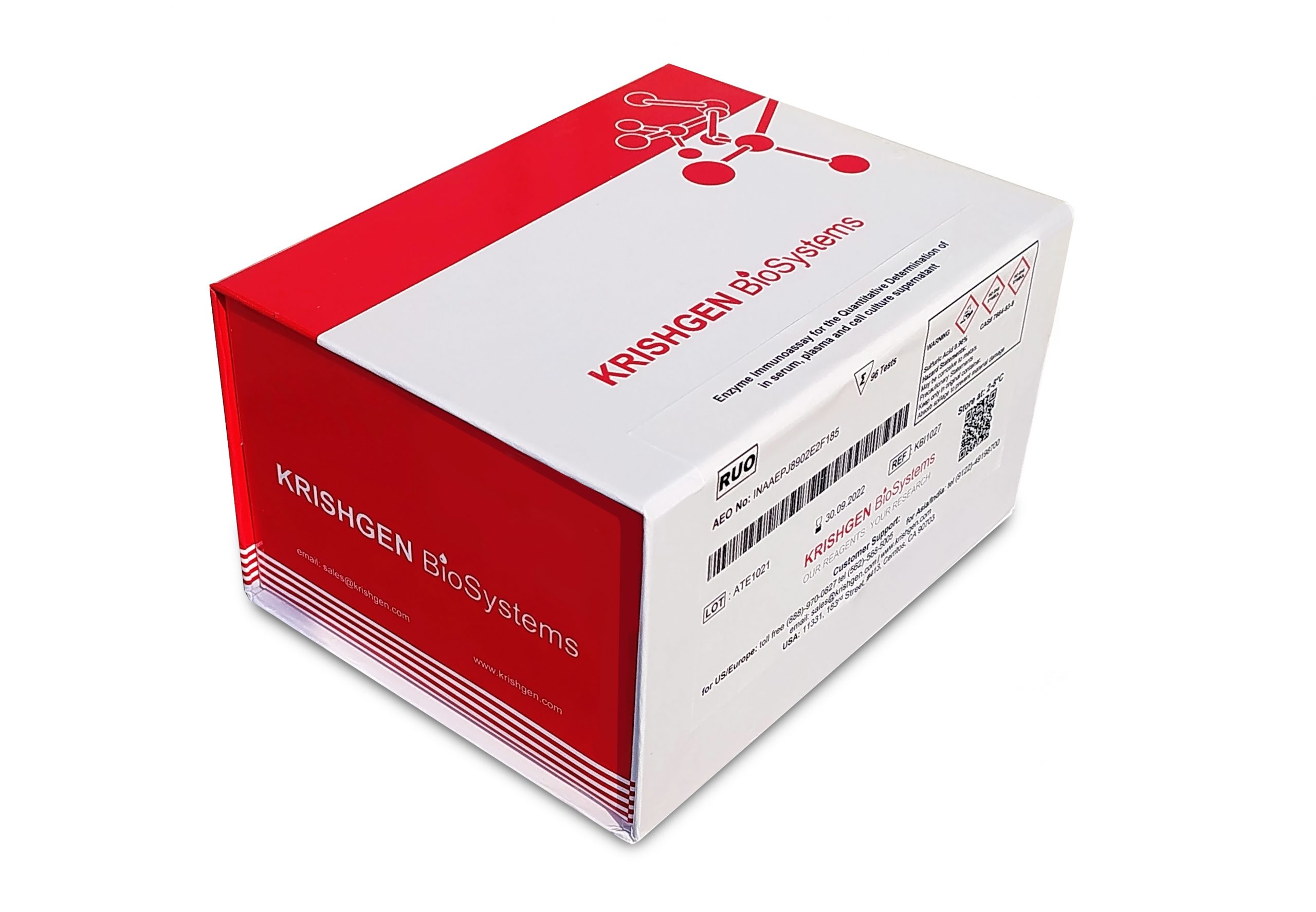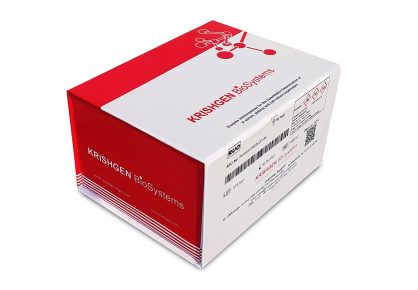Dipeptidyl Peptidase 4 (DPP4) ELISA
The Dipeptidyl Peptidase 4 (DPP4) ELISA Assay Kit is For Research Use Only
Size: 12 x 8 wells
Standard Range: 500 – 8000 pg/ml
Sensitivity: 497 pg/ml
Incubation Time: 1 hours 10 minutes
Sample Type: Serum, Plasma, or Biological Samples
Sample Size: 40 µL
Assay Principle
The method employs sandwich ELISA technique. Human Dipeptidyl-Peptidase 4(DPP4) monoclonal antibody are pre-coated onto microwells. Samples and standards are pipetted into microwells and Human Dipeptidyl Peptidase 4, DPP4 present in the sample are bound by the antibodies. Biotin labeled Dipeptidyl-Peptidase 4(DPP4) antibody is added and followed by Streptavidin-HRP is pipetted and incubated to form a complex. After washing microwells in order to remove any non-specific binding, the substrate solution (TMB) is added to microwells and color develops proportionally to the amount of Human Dipeptidyl Peptidase 4, DPP4 in the sample. Color development is then stopped by addition of stop solution. Absorbance is measured at 450 nm.
Sample Preparation and Storage
Specimens should be clear and non-hemolyzed. Samples should be run at a number of dilutions to ensure accurate quantitation.
1. Extract as soon as possible after specimen collection as per relevant procedure. The samples should be tested as soon as possible after the extraction. Alternately the extracted samples can be kept in -20°C. Avoid repeated freeze-thaw cycles.
2. Serum- Coagulate at room temperature for 10-20 minutes; centrifuge for 20-min at 2000-3000 rpm. Remove the supernatant. If precipitation appears, recentrifuge.
3. Plasma- Use EDTA or citrate plasma as an anticoagulant, mix for 10-20 minutes; centrifuge for 15-min at 2000-3000 rpm. Remove the supernatant carefully. If precipitation appears, recentrifuge.
4. Urine- Collect urine in a sterile container, centrifuge for 20-min at 2000-3000 rpm. Remove the supernatant. If precipitation appears, recentrifuge.
5. Cell Culture Supernatant- Collect sample in a sterile container. Centrifuge for 20-mins at 2000-3000 rpm. Remove the supernatant carefully. When examining the components within the cell, dilute cell suspension with PBS (pH 7.2-7.4), if cell concentration is greater than 1 million/ml. Damage the cells by repeated freeze-thaw cycles to release intracellular components. Centrifuge for 20-min at 2000-3000 rpm. If precipitation appears, centrifuge again.
6. Tissue Samples- Rinse tissues in PBS (pH 7.4) to remove excess blood thoroughly and weigh before homogenization. Mince tissues and homogenize them in PBS (pH7.4) with a glass homogenizer on ice. Thaw at 2-8°C or freeze at -20°C. Centrifuge at 2000-3000 RPM for approximately 20 minutes and collect the supernatant carefully.
Note: Grossly hemolyzed samples are not suitable for use in this assay.


